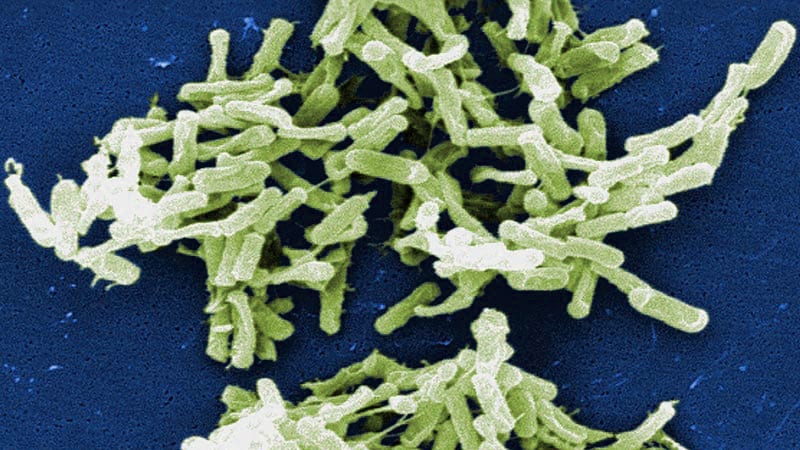Fecal Transplants for Kids with C Diff: AAP Report
Core Concepts
Fecal transplants are safe and effective for recurrent Clostridioides difficile infections in children, but caution is advised for other gastrointestinal ailments.
Abstract
The American Academy of Pediatrics (AAP) released a clinical report endorsing fecal transplants for recurrent Clostridioides difficile infections in children but warns against their use for other gastrointestinal conditions. The report emphasizes the safety and efficacy of fecal transplants while highlighting the lack of scientific evidence supporting their effectiveness in treating ailments like Crohn's disease or ulcerative colitis. Screening of donors, the need for medical supervision, and the potential risks associated with at-home procedures are discussed. The report also addresses the absence of controlled clinical trials for pediatric FMT efficacy, relying on retrospective data to support its recommendations. The importance of including children in microbiome-related clinical trials is emphasized, given their developing gastrointestinal microbiome.
Use the Stool! Fecal Transplants Help Kids With C Diff
Stats
Serious adverse reactions associated with an FMT are rare, occurring in roughly 2% of cases.
One or two courses of FMT prevented CDI recurrence in children 87% of the time.
Quotes
"People might see a video on YouTube and think they can do this themselves." - Maria Oliva-Hemker, MD
Key Insights Distilled From
by Marcus A. Ba... at www.medscape.com 11-20-2023
https://www.medscape.com/viewarticle/998634
Deeper Inquiries
How can the medical community ensure the safe and regulated use of FMTs outside of clinical trials?
To ensure the safe and regulated use of FMTs outside of clinical trials, the medical community can implement several measures. Firstly, establishing clear guidelines and protocols for screening donors is crucial. Donors should undergo thorough screening for infections through questionnaires, blood tests, and stool analysis to minimize the risk of transmitting harmful pathogens. Additionally, healthcare facilities should provide proper training to healthcare professionals on performing FMT procedures safely and effectively.
Moreover, creating awareness among caregivers and patients about the potential risks of performing FMT at home is essential. Encouraging individuals to seek medical facilities for FMT procedures can help prevent adverse events and ensure proper monitoring of patients post-transplant. By emphasizing the importance of medical supervision and adherence to established protocols, the medical community can promote the safe and regulated use of FMTs for treating recurrent CDIs in children.
What challenges exist in conducting controlled clinical trials for FMT efficacy in pediatric populations?
Several challenges exist in conducting controlled clinical trials for FMT efficacy in pediatric populations. One significant challenge is the limited availability of pediatric-specific data on FMT outcomes. Unlike adult data, which often come from randomized clinical trials, there is a lack of controlled or prospective clinical trials focusing on FMT in children. This scarcity of data makes it challenging to assess the efficacy and safety of FMT specifically in pediatric populations.
Additionally, enrolling children in clinical trials can be complex due to ethical considerations and regulatory requirements. Obtaining informed consent from parents or guardians, ensuring child welfare, and addressing potential risks associated with FMT procedures are critical aspects that need careful consideration. Moreover, the dynamic nature of a child's gastrointestinal microbiome poses challenges in understanding the long-term effects of FMT in pediatric patients. These factors collectively contribute to the challenges in conducting controlled clinical trials for evaluating FMT efficacy in children.
How can the understanding of the microbiome in children impact the development of new therapies beyond FMTs?
The understanding of the microbiome in children can significantly impact the development of new therapies beyond FMTs. Children have a developing gastrointestinal microbiome that is more responsive to therapeutic interventions compared to adults. This heightened responsiveness opens up opportunities for developing targeted therapies that can modulate the microbiome to promote health and prevent disease.
By studying the microbiome in children, researchers can identify key microbial signatures associated with various health conditions, paving the way for personalized treatments. Understanding how the microbiome influences immune function, metabolism, and overall health in children can lead to the development of innovative therapies that target specific microbial imbalances or dysbiosis.
Furthermore, insights gained from microbiome research in children can inform the development of probiotics, prebiotics, postbiotics, and other microbiome-targeted interventions that go beyond FMTs. These therapies have the potential to modulate the microbiome in a more targeted and sustainable manner, offering new avenues for treating a wide range of gastrointestinal and systemic conditions in pediatric populations.
0
